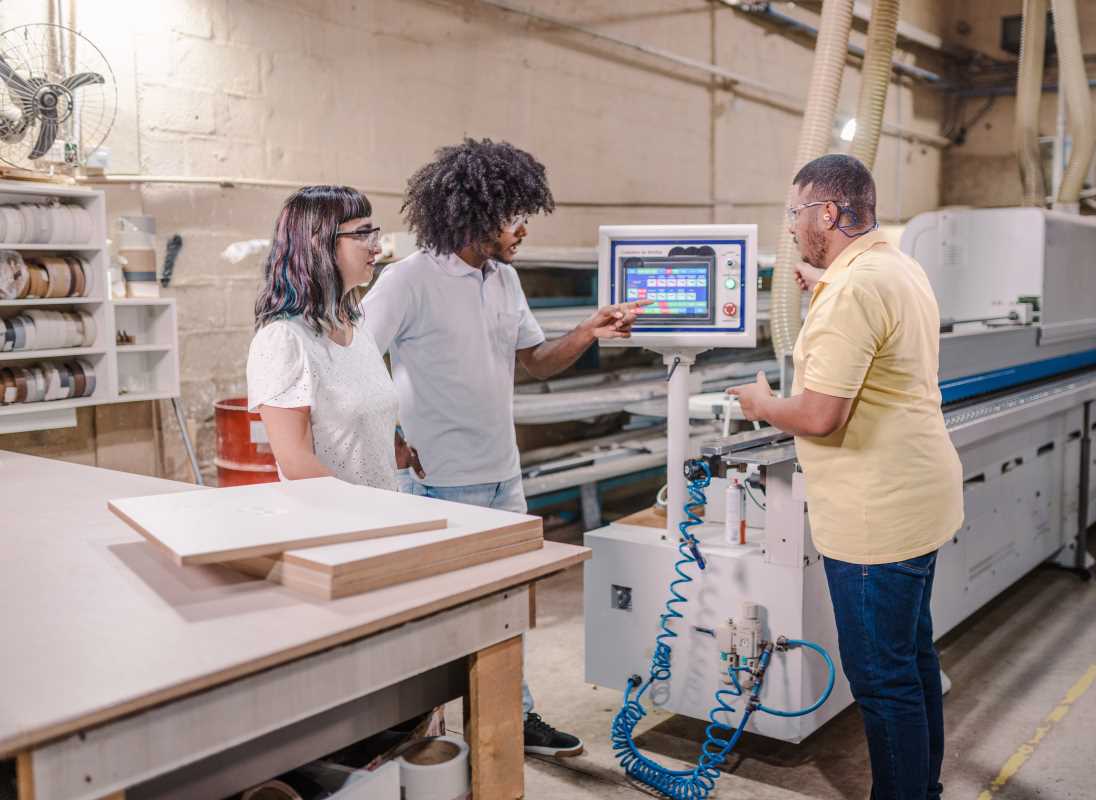We live in a time that feels like it’s straight out of a science fiction movie. Artificial intelligence is changing how we work and create, robots are becoming more common in factories and even our homes, and new digital concepts like blockchain are creating entirely new industries. These aren't just cool ideas; they are emerging technologies that are shaping the future and creating thousands of exciting, high-paying jobs. If you are fascinated by what's next and want to be one of the people building this future, getting the right education is key. A great program in an emerging tech field will do more than just teach you theory; it will give you hands-on experience with cutting-edge tools and connect you with the innovators and companies leading the charge.
What to Look For in an Emerging Tech Program
Before we jump into specific schools, it helps to know what makes a program stand out in these fast-moving fields. Because the technology changes so quickly, a good program must be incredibly dynamic. Look for universities that have dedicated, state-of-the-art research labs for things like AI, robotics, or virtual reality. This is where you'll get to play with the latest tech and contribute to real, groundbreaking projects.
Another critical factor is the faculty. Are the professors just academics, or are they actively involved in the industry? A professor who runs their own AI startup or consults for a major robotics company can provide insights and connections you won't find anywhere else. Finally, pay attention to the school's ties to the tech industry. Schools located near tech hubs often have strong partnerships with companies, which means more internship opportunities, guest lectures from industry leaders, and a better chance of landing a great job right after graduation.
Carnegie Mellon University
When it comes to artificial intelligence, Carnegie Mellon University (CMU) in Pittsburgh is in a league of its own. It was one of the first universities to establish a dedicated AI research lab back in the 1950s, and its School of Computer Science is consistently ranked as one of the best in the world. CMU is a place where the history and the future of AI live side by side.
What makes CMU truly special is that in 2018, it became the first university in the United States to offer a bachelor's degree specifically in Artificial Intelligence. This isn't just a computer science degree with a few AI classes; it's a comprehensive program that covers machine learning, natural language processing, computer vision, and robotics from the ground up. Students get a deep understanding of both the theory behind AI and how to apply it to solve real-world problems. With its intense focus and legendary reputation, a degree from CMU is a golden ticket for anyone who wants to become a leader in the field of artificial intelligence.
Massachusetts Institute of Technology (MIT)
If you dream of designing, building, and programming the next generation of robots, there is no place more iconic than the Massachusetts Institute of Technology (MIT). MIT is a playground for people who love to build things, and its work in robotics is world-famous. The university is home to the Computer Science and Artificial Intelligence Laboratory (CSAIL) and other labs that are constantly pushing the boundaries of what robots can do.
Students at MIT can study mechanical engineering or electrical engineering and computer science, with a heavy focus on robotics. The university's "Mens et Manus" (Mind and Hand) motto is taken seriously here. Learning is intensely hands-on, and students are encouraged to work on ambitious projects, from developing new robotic grippers inspired by nature to programming autonomous drones and self-driving cars. The culture at MIT is one of fearless experimentation. For a creative builder who wants to bring intelligent machines to life, MIT provides the ultimate environment for innovation.
Stanford University
Blockchain, the technology behind cryptocurrencies like Bitcoin, is a revolutionary new way to store and transfer information securely. It has the potential to change everything from finance to supply chain management. Stanford University, located in the heart of Silicon Valley, has emerged as a global leader in blockchain research and education.
Stanford's Center for Blockchain Research brings together faculty and students from its computer science, business, and law schools to explore the technology from all angles. Students can take a range of courses on topics like cryptography, cryptocurrency, and smart contracts. What makes Stanford unique is its deep connection to the venture capital and startup world. Many of the leading figures in the blockchain industry have ties to Stanford, and the university is a hotbed for new blockchain-based companies. For an aspiring tech entrepreneur who wants to be at the center of the decentralized revolution, Stanford is the place to be.
University of Southern California (USC)
Virtual Reality (VR) and Augmented Reality (AR) are no longer just for video games. These immersive technologies are being used for everything from surgical training and architectural visualization to new forms of entertainment and social interaction. The University of Southern California has been a pioneer in this space for decades.
USC's School of Cinematic Arts and Viterbi School of Engineering have a close collaboration, recognizing that creating compelling VR/AR experiences requires a blend of artistic creativity and technical skill. The university's MxR Lab is a state-of-the-art facility where students can develop and test new immersive technologies. Students can pursue degrees in computer science with a focus on game development or in interactive media, learning how to build the virtual worlds of the future. With its ties to both Hollywood and the LA tech scene, USC is the perfect place to learn how to create powerful and meaningful experiences in these new digital realities.
 (Image via
(Image via





